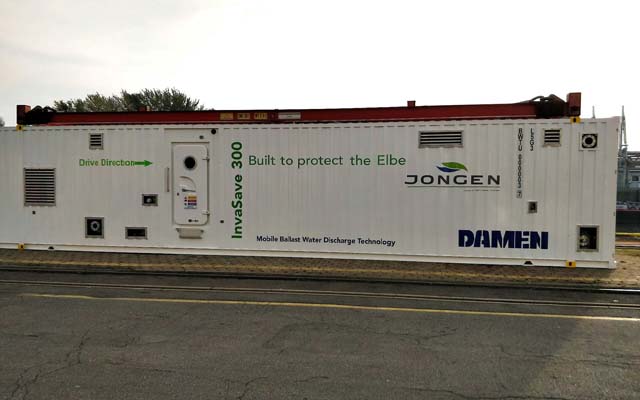According to the Port of Hamburg, from September 2024, the rules for discharging ballast water in ports will change; IMO will then require all seagoing vessels to treat ballast water when discharging it, usually in coastal areas, to prevent the spread of invasive species.
With this in mind, from 1 June 2024, ships that do not have a system on board or whose system cannot be operated properly are able to have their ballast water treated in the port of Hamburg.
The Authority for the Environment, Climate, Energy and Agriculture (BUKEA) has granted a licence to Bawat BaaS and the Hamburg waste management company Jongen to operate a mobile ballast water treatment plant. This will ensure smooth handling in the port of Hamburg while complying with legal requirements.
Jens Kerstan, Senator for the Environment, Climate, Energy and Agriculture, said: ‘Ballast water must be cleaned to protect our environment and our seas. Invasive organisms can spread uncontrollably and significantly disturb the native balance. I am delighted that Bawat BaaS and the Hamburg-based waste management company Jongen will be able to operate a mobile treatment plant in the Port of Hamburg. This will ensure that shipping in Hamburg can continue to run smoothly and that only purified ballast water is discharged into our port.”
Seagoing ships must take on or discharge ballast water to ensure the stability of the ship. The International Ballast Water Convention entered into force on 7 September 2017. Its (transitional) regulations stipulate that by 8 September 2024 at the latest, all seagoing ships must have ballast water treatment when ballast water is discharged into port to stabilise the ship. Ships without a ballast water treatment system are subject to the discharge ban and must leave the port of Hamburg with no or a reduced load.
Image: Ballast water treatment plant in Hamburg (source: Port of Hamburg)



